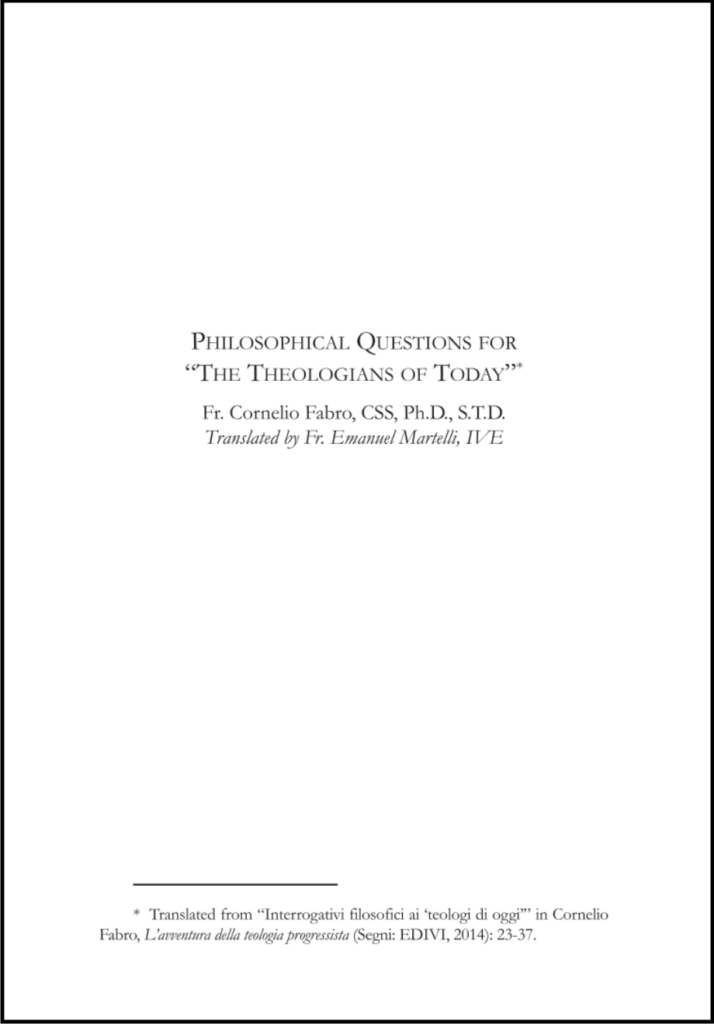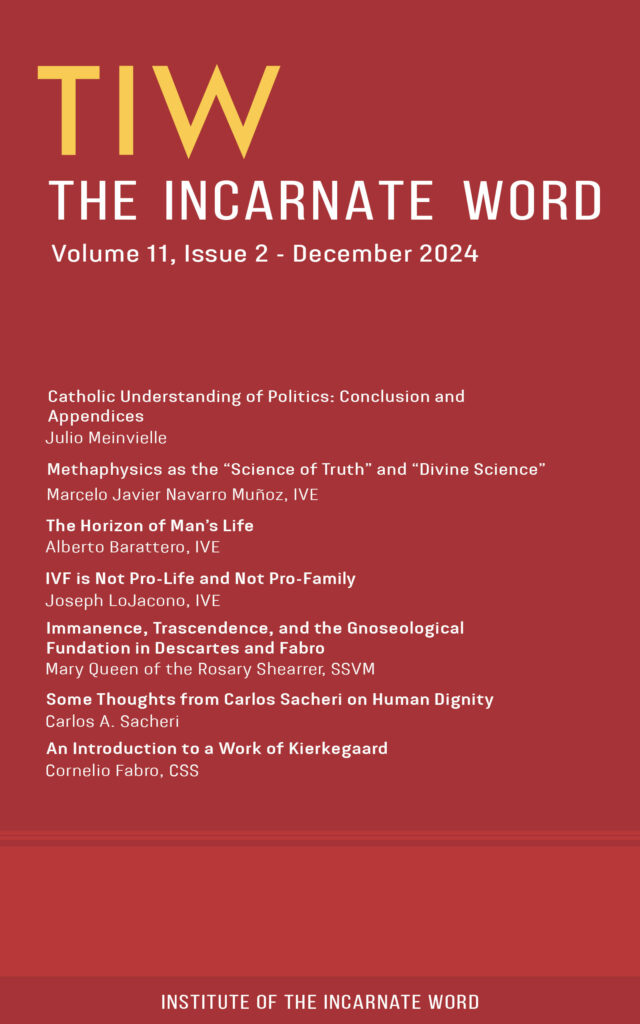By “THEOLOGIANS OF TODAY,” I mean the “progressive theologians” in dogmatic and moral theology, that is, the ones who are carrying out a “re-interpretation of Christianity.” They believe that it is necessary to “carry forward” the openings began by Vatican II by indiscriminately spreading philosophical and theological pluralism, ecumenism, and the like, and this on the foundation of a radical secularism, and in general by the assumption of the principle of the modern transcendental in theology which has produced the so-called “anthropological turn” as a result.
However, is this new theology able to keep its identity as a “sacred science” (sacra disciplina)? Is it based, that is, is it really on the same path and direction as Vatican II? Is the “anthropological turn” of theological reflection proclaimed by this new theology able to carry out a discourse regarding the message of salvation?
From a theoretical point of view, what is mostly disturbing is how it is possible to “continue doing theology” without meta-
physics: hence, this theology is without an absolute notion of the truth of being, the only thing upon which it is possible to establish a consistent proof that “God exists” and an “absolute distinction” between creature and creator, nature and grace, sin and redemption, and from this the real consistency of the redemptive Incarnation. Doesn’t this new theology go back in essence to the immanentistic positions of Hermes, Günther…
TO VIEW FULL ARTICLE SUBSCRIBE TO PDCNET




